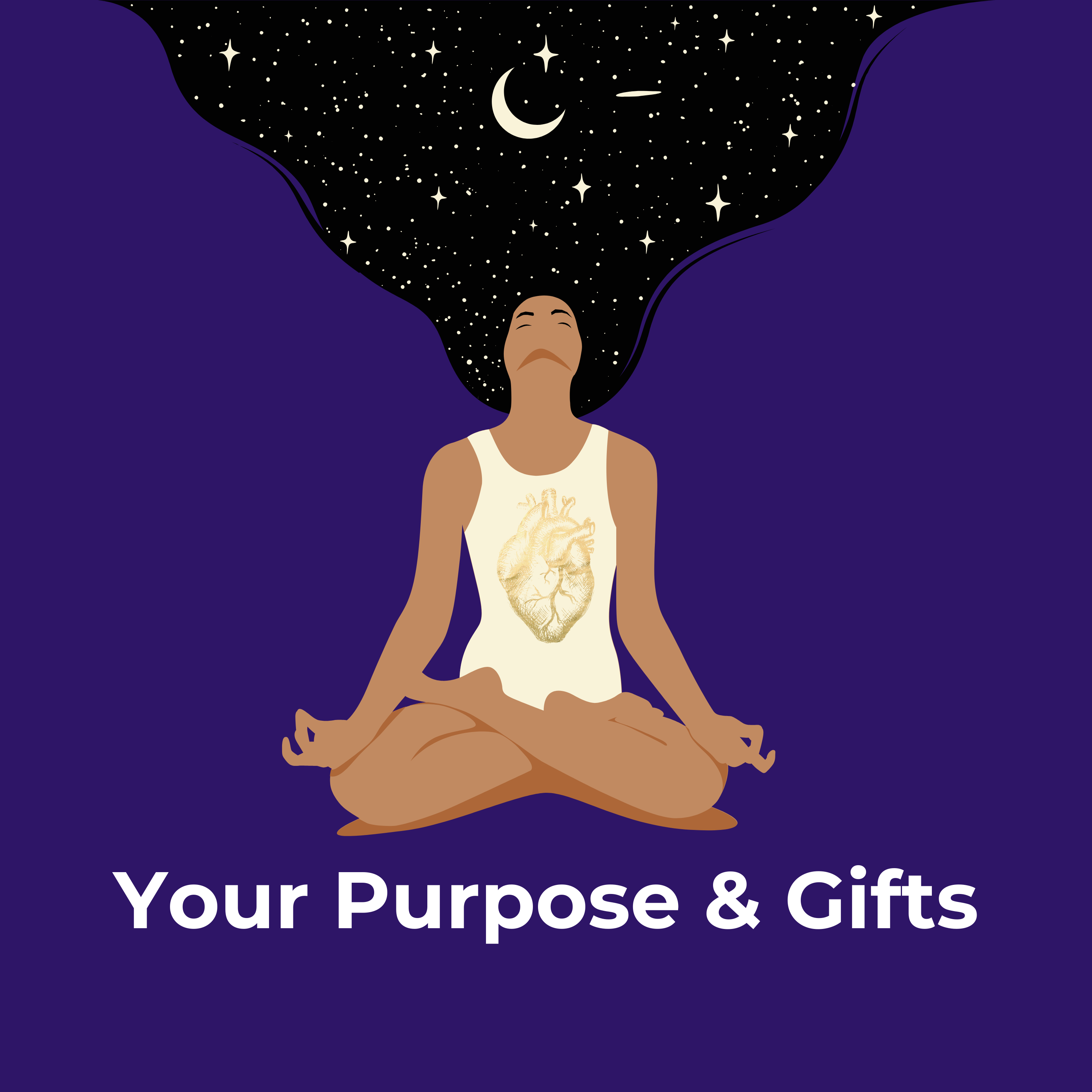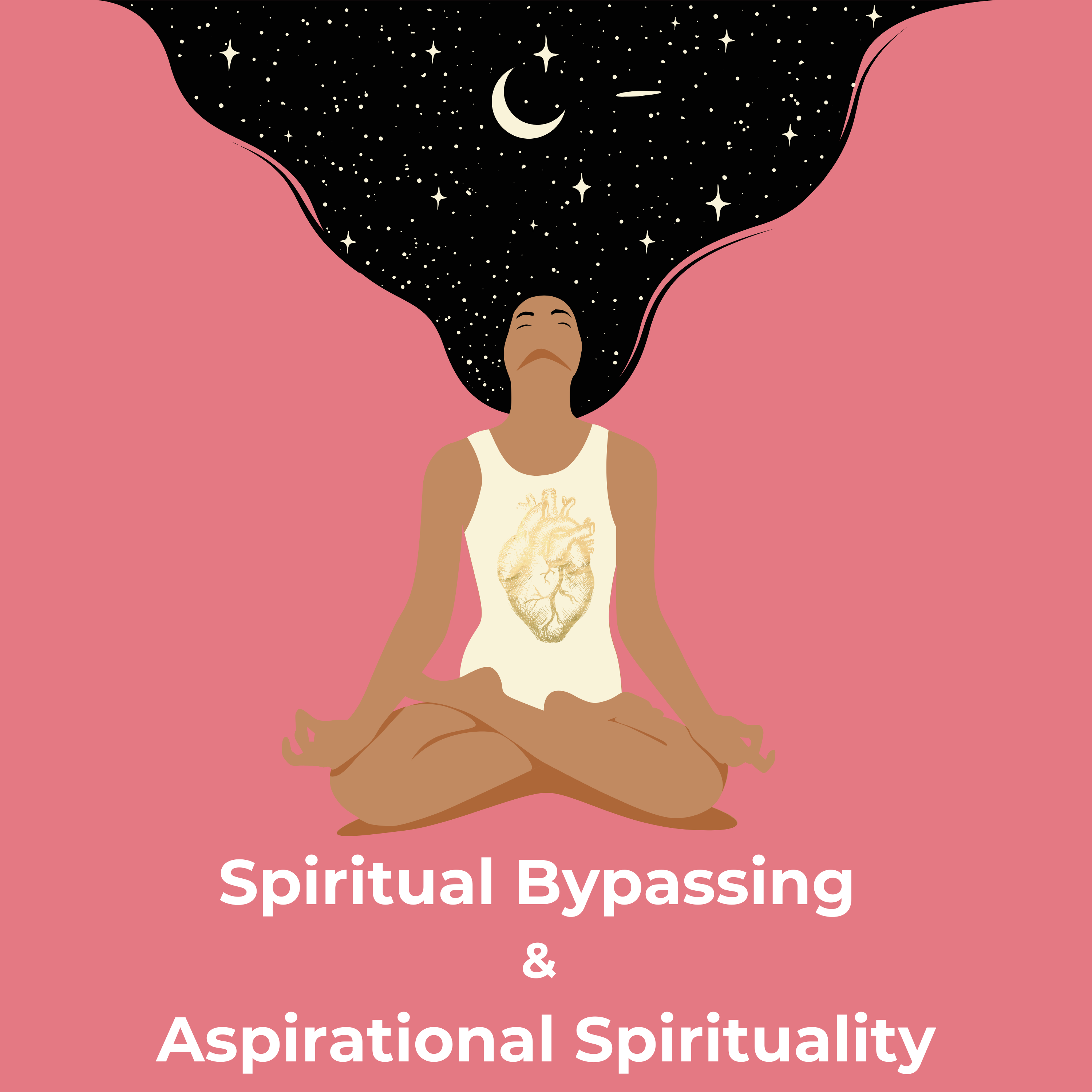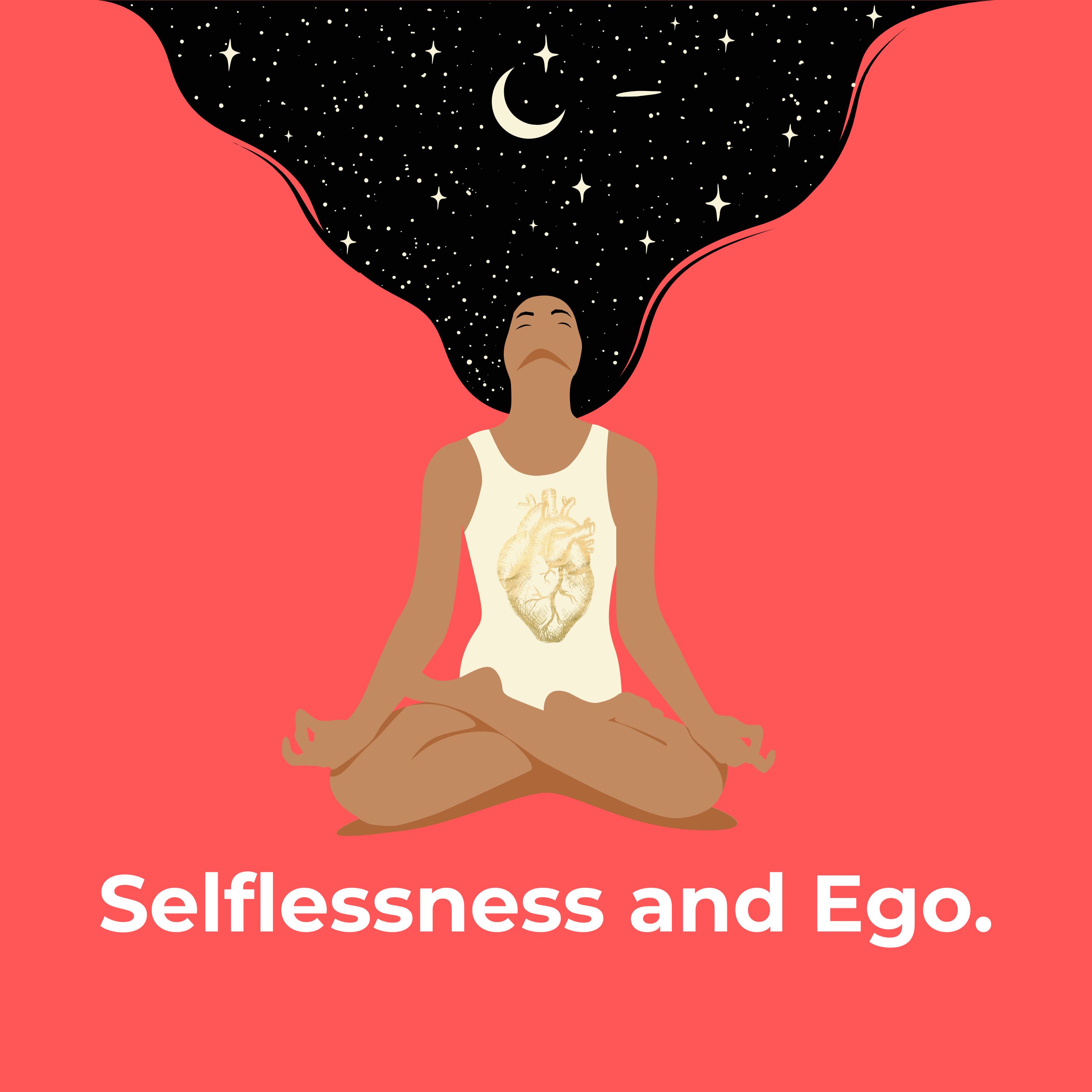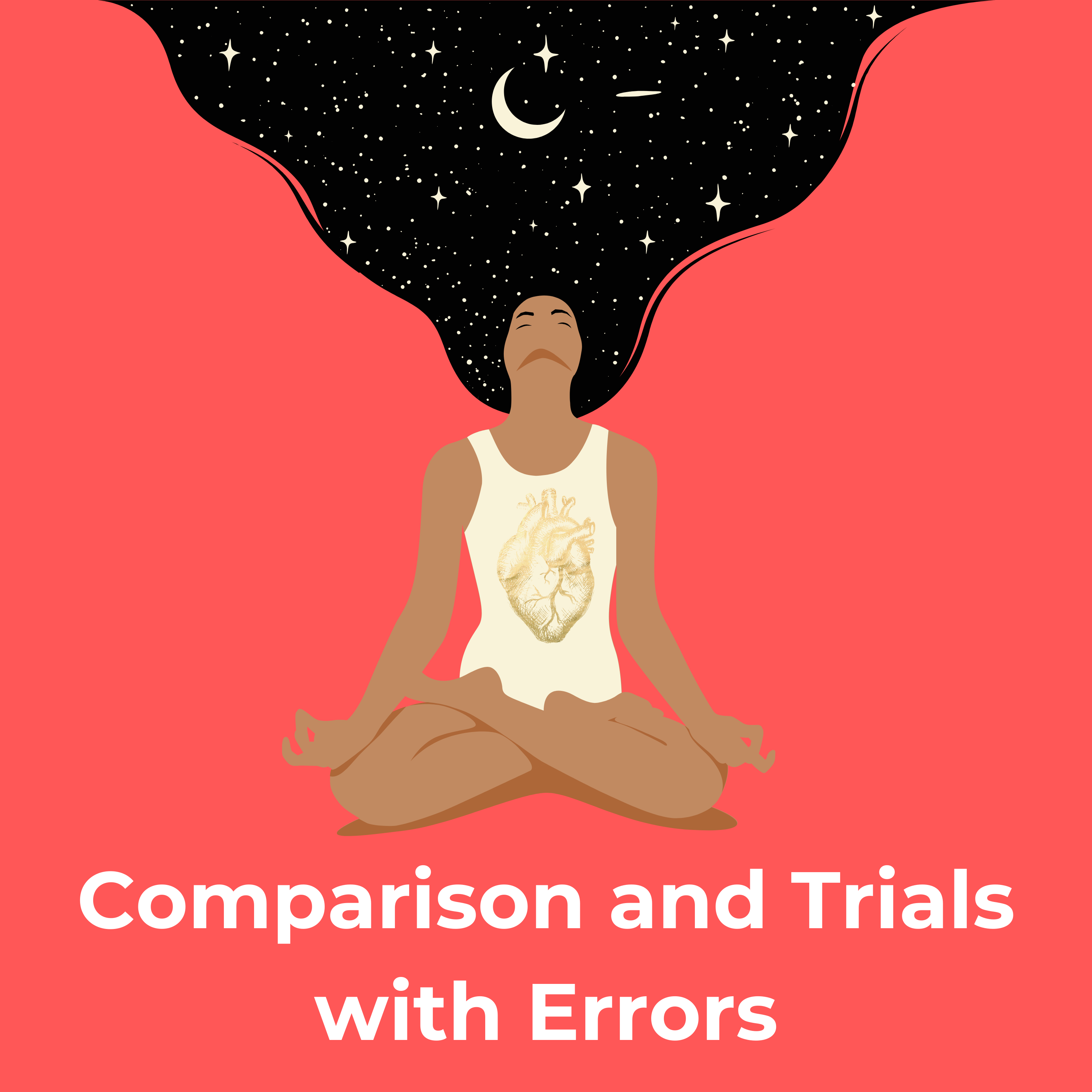Episode Transcript
[00:00:01] Speaker A: The world of healing can be treacherous. But suddenly Spiritual aims to provide real, honest, practical spiritual knowledge and wisdom for the true seekers among us.
The goal is to ignite the divine human within each listener, raising the collective consciousness for our planet. We will challenge your preconceptions, push your buttons, and encourage deep reflect. We're not here to adhere to the status quo of what the new age spiritual market wants you to buy into and believe.
Consider this your antidote to the woo woo and a place of woo. You.
[00:00:53] Speaker B: So we're talking about what you're going to do in the world. Make your mark.
And for me, as I've gone through this, definitely the next immediate thing I thought about is, well, what do I do? Well, what are my gifts?
[00:01:12] Speaker C: What are the tools that you're using?
[00:01:14] Speaker B: Yeah. So how can people delineate through that when they're trying to figure out what their gifts are? And I think a lot of people aren't even given credit for what they do.
Or maybe they recognize it and then they downplay it.
[00:01:32] Speaker C: I think it leaves clues. Your gifts leave clues as to what they are. You just have to be in a place that you can receive them without judgment and without trying to define them very narrowly. For instance, there is this thing called holding space, and it's used very commonly and often in spiritual circles and within ceremonial spaces. Holding space.
This is not something that, to my knowledge, indigenous cultures or ancient cultures defined it like. They didn't say this is what holding space is, they just did it.
And recently I was asked to do a workshop for people on what holding space is. I can't even define what that is. I could try, certainly, but.
[00:02:31] Speaker B: Well, I was going to ask you to, so.
[00:02:35] Speaker C: And I'm good at it from what people have told me, from the feedback I've received. But I internally haven't said I'm good at holding space. People have given me the feedback of, you're good at this, whatever this is, which I'm going to try to define. But holding space for me is when someone is going through a challenge or is working through a problem or issue something about their character, their life's purpose, anything that they're going through in life.
I hold a neutral space that's safe, psychologically safe, emotionally safe, spiritually safe, where they feel that they can fully express themselves in whatever ways they need to, in whatever way that looks like or sounds like. Or looks like. Yeah, looks like or sounds like, without judgment, without trying to fix anything or change anything. But coming to it with curiosity, I'm there as A witness holding them in unconditional love and safety and only asking questions if it's even appropriate. Sometimes I hold space and I don't say anything.
All the person needs is me to sit. To sit in front of them, which I've done, where I just literally sit in front of somebody and just be a stable point because they feel a lot of instability or ungroundedness. And I am just kind of like a mountain that holds a neutral place, that's grounded and rooted for them to track, to keep them in their body or in the present moment. And I don't say anything.
So when I was asked to do this workshop, I started to think about what is holding space. When did I learn how to do this? And if I'm going to be teaching people about it, I better be able to articulate what it is and how to do it, the hows of the how of it.
So I started to think about when I was a child and how I was with adults and how my mother was.
And I was raised very. In a very religious household.
And I've been to a lot of churches in my life, many hours of church.
I started to look at, like, well, how in churches is space held?
Who holds the space?
Or outside of church, how do religious people do that?
So that I think that's where I was informed. And then being a therapist going to, you know, higher education, where there was a therapist who was a professor of mine, where we had this practical class where this is what she was teaching us, how to hold space. And so we were paired off in dyads, and she was an observer. And I remember just sitting across from another student, and they would say something, and I would try to come in with a solution, and my professor would stop me. And she goes, no, you're just holding space for it. You're not going to say anything. The only thing you're going to do is ask questions. Tell me more about that. How does that feel?
I'm really curious about this.
I'm wondering about what you just said.
She really is the one who put words to it and taught it to me in a very class, you know, in a classroom setting, in a more educational way rather than an intuitive way. So I feel like I've been holding space for my entire lifetime, it seems, and now it's becoming something that's more crystallized.
But it took someone else telling me that I'm good at it because I couldn't. I didn't. I saw it as something that I naturally did.
And sometimes we need Other people to point out things to us and then investigate. So if the gift is holding space and I was given the feedback of, hey, you do this well, will you teach it? Then it's my role in this to look back, start to review, well, what is it that I do? When did I first do it? Who taught me how to do this? And then investigate. And then within that fear, there's other gifts that are involved. So to welcome them and accept them, even if they're not something that you can tangibly talk about, but knowing that they're there and getting deeper into a relationship with them. I know this sounds very nebulous, especially with the holding space example, because it's such a nebulous thing, but what if you were a really good baseball player as a kid? Or what if you were a good. What if he had a great voice? Cause Sean has a great voice. So I'm sure many people in his life have told him that he has a great voice probably since he was, you know, zero. Zero? Are you serious?
[00:07:51] Speaker B: Never been told that.
[00:07:54] Speaker C: That's a lie.
Nobody's told you have a great voice.
[00:07:57] Speaker B: No. And I did play baseball at a high level. I don't know if you were just referring to me or was.
[00:08:03] Speaker C: I was referring to you. I knew that about you.
[00:08:06] Speaker B: No, no one's ever told me that. But it's interesting. When you say the word gift, immediately I'm thinking, somebody gives you something.
So then how do I navigate differentiating? Okay, was this an acquired skill that I'm really good at, or was it given to me by God, the universe? Or was the gift of recognition. Somebody gave me a gift of, hey, you're good at this.
Three different questions there.
[00:08:40] Speaker C: I think it's all of the above, honestly.
[00:08:43] Speaker B: Right. Because there's no one answer. Never.
[00:08:45] Speaker C: Yeah, there's no. There's never one answer. I wish there was, but there isn't.
Nobody's told you that you have a really great voice, Sean. I find this hard to believe.
[00:08:54] Speaker B: Yeah, it's okay. I'm fine with it.
[00:08:58] Speaker C: It hasn't stopped you.
[00:09:01] Speaker B: No. And when it's funny, most people hear me on the radio or they hear me here, I'm going through equipment, but then when I turn it off, it's still my voice, but people recognize the difference.
For me, as an aside, when I haven't gone out as frequently as I normally do, but I'm still doing podcasting and I'm still on the radio and everything, but when I'm speaking now or in general, I have headphones on, so I actually don't have to speak that loud. And then when I go out and interact with human beings, I'm speaking really low and people are like, what'd you say? I'm like, oh, yeah, Sean, outside voice, outside volume. Because when I'm speaking into a microphone or hear, I can turn up the headphones. I don't have to speak as loud. I don't have to project as much.
So I find that interesting. I'm like, oh, yeah, I haven't been out and interacted with human beings in a week or so. Yeah, outside voice. Outside voice.
[00:10:03] Speaker C: What about your skill with sound?
Like your gift?
[00:10:07] Speaker B: Yeah, so it's interesting. That's what I was sort of thinking of. So obviously when I started, it was just a fascination basically with music. And then it led into sound and perfecting and being. Learning how to be a mastering engineer and a mixing engineer. And I never really cared. It was all about making my music sound the way it needed to be. And then it just led completely. This is actually a good story to illustrate, I guess, what you're saying. Then it just led into me going to school, learning it professionally, then applying that into the artistic world, being an engineer, working with other artists, and then right into, at a certain point, becoming a professor, like teaching all the stuff I learned again. And I can definitely tell you, going through it, I know I was teaching it so I could learn it better, and what it reinforced that, yeah, I know what I'm doing. But when you explain something to somebody, you're learning it again.
[00:11:14] Speaker C: Yes.
[00:11:14] Speaker B: And for 10 years, I was learning it over and over again and for 10 years while I was doing it. So in that sense, yes, I've. People have told me that. And it's funny when they do tell me, I just kind of. I say thank you or I acknowledge it, but it doesn't have an imprint on me at all. It's as if they never said it.
[00:11:36] Speaker C: Interesting.
[00:11:37] Speaker B: And the reason, as I'm examining it now, as we're saying, the reason for that is I know.
I already know that without ego, I know I'm good. I can do it at a high level, and I do it at a high level regardless of somebody says I'm good or bad doesn't affect me at all. So it's that whole saying your opinion of me doesn't matter to me at all. Within my business and post production, doing audio, being a mixing, mastering engineer, that stuff, I enjoy it.
And I know I'm doing it at a high level because when I listen back to it. I know it. It's at the level I want it to be, so I don't have to prove it to anybody. I'm impressing myself.
And as long as I impress myself, I know, okay, now, when I was younger, you'd get into the cycle of only knowing as much as you know and going, oh, yeah, this is amazing. Yeah, but you haven't heard this.
Oh, okay, I got more work to do. Oh, yeah, this is amazing. Yeah, but you got to do this now.
So for me, all the stuff I'm working on, the radio, the post production, like, it's high quality every day, so I have a frame of reference. And that's the important thing, I think, when we're talking about what's your tool, what's your gift? You can have an opinion of what you think you're good at, but you have to have. And, you know, we talked from previous episodes about not comparing yourself or your life to others, but when it's a craft or an art through craft of it.
If you're a cobbler and if people keep coming back and going, hey, my feet hurt. Are you a good cobbler? Or. People love these shoes, and they're like, oh, my God, Frank, shoes are amazing.
And everybody's going to Frank, and they're not coming to you anymore.
Okay, are they all wrong?
Or do you need to make better shoes?
[00:13:51] Speaker C: Or have you stagnated?
Like, have you not improved?
[00:13:55] Speaker B: I've been guilty of that. Patting on myself in the back too much. And then, oh, once I got rid of. Pulled that ego down and just said I would just. I want to get better for better's sake.
And it's something, I think anybody who does anything, even if you're an accountant, like, it's ones and zeros, debit, credit. Like, nothing changes the methodology, maybe the tools change, I would think. But you're still an art to numbers. There's an art to everything, I think.
[00:14:30] Speaker C: I agree.
[00:14:31] Speaker B: You have all your tools, but then it's the gift and the ego rubbing together. That is the thing.
I've had friends myself definitely struggle with, and I'm sure a lot of people can struggle with that.
And it can serve a purpose, right? Because, you know, we need discipline, we need organization, and it can serve a purpose in that sense. Like, the best artists are the ones who can combine the two as opposed to just floating around and, yeah, I'll make a painting when I'm inspired every 10 years.
Okay, if that's your thing, that's your thing. But for me, it's mostly about, okay, that gift we're talking about, It's a gift for me, it's a gift for everyone else.
And for the longest time, it was in opposition. Hey, I'm trying to be more spiritual. I don't want to compare myself to others. I just want to increase my self awareness. Okay. I'm more aware now. Okay. My work's amazing because I like it. Yeah, but is it really good? What do you. What's your frame of reference? And not in an ego way, but just, I guess, quality, you know, if you're an artisan of any kind, like I said, whether it's being a cobbler or a hat maker or whatever, if it's art to art to express yourself, they can be weird hats. But then if you want to make functional hats, you know, is the brim too long? Is the brim too short? Does the person need it for combat? Does. I'm going down a rabbit hole here, but you see what I mean as far as comparing your gift to sort of, I guess you could say, the objective acceptance of functionality, depending what it is. A lot of things there, but yeah, and role models.
Right. For those of you listening when we're talking about what your gifts are, you know, what are you good at? Like Sophia was saying, and what does the most to move the needle for you or for other people?
[00:16:33] Speaker C: Yeah.
[00:16:34] Speaker B: And I think that's why this is. You're right. It is very nebulous.
But what are some things, if people who are struggling like I am to just, okay, what are my gifts? Is it some. Somebody recognizing it is me recognizing it. Is it a skill over time, or is it something innate? It's probably a little bit of all.
[00:16:57] Speaker C: Of that, I would say, like, what are you drawn to?
[00:17:00] Speaker B: Hmm.
What.
[00:17:03] Speaker C: What has a pull, like, almost like this magnetic pull?
For me, it's like writing. I love to write.
And if I. If I couldn't write ever again, I. I don't know how my life would be if that got taken away.
[00:17:20] Speaker B: What are some other questions people can ask themselves?
[00:17:23] Speaker C: So what are you drawn to?
What are you interested in?
And also like asking your question. Asking a question to yourself about what is unique about you and how you look at things.
[00:17:42] Speaker B: Not your name, but not your name.
[00:17:45] Speaker C: Maybe not your name, but if you really going into a meditative space and what really separates us from artificial intelligence is our creativity, our ability to innovate, and our ability to improvise.
Where do you improvise in life? Where is your creativity? Where does it come from? How does it show up, because that's what really makes you unique. Your level of improvisation, your level of creativity, innovation. Places where you do things different. Looking at those places or even thoughts that may be different than others, or the language you use, what, how you dress.
It could be anything. It could be what plants you have in your house or, you know, just the interests that you have. Where are you showing your creativity? Where are you showing uniqueness?
That typically tends to be where gifts lie. Because you're seeing things outside of the norm, quote, unquote norm, of what others are seeing them.
So finding those places, because I think creative expression is probably the most. One of the most important things that human beings need to feel alive. Not surviving, but actually alive.
That creativity. It's really, for me, in my perspective, creativity is like the spark from the divine that makes us so unique as human beings. Because each of our creative sparks expresses so differently. If we allow it, there's the allowing piece. Because there, again, can be a lot of judgment. Well, this is weird. I'm sure Salvador Dali, like, people thought his stuff was weird at some point.
Right now, people probably think his stuff is weird, but there's a whole group of people who find it valuable and stunning and amazing. But melting clocks with little ants going through them is probably not everybody's cup of tea.
But he was a genius to me.
So he found where he saw things differently, where he was creative, where he innovated, and that was his genius. That was his purpose to express that way.
[00:20:16] Speaker B: Agreed. And I encourage everyone here listening.
Go create something. Go do something creative.
And we will speak to you next time. Thanks for listening.



